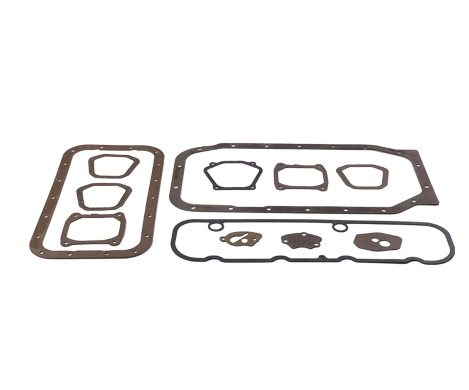Cork Rubber Gasket

Descrição do produto
A cork rubber gasket, also known as a cork-rubber composite gasket, is a type of gasket that combines the properties of cork and rubber materials. It is made by bonding layers of cork and rubber together to create a durable and flexible sealing material.
Cork is a natural material derived from the bark of cork oak trees. It is known for its compressibility, resilience, and excellent sealing properties. Rubber, on the other hand, provides elasticity, durability, and resistance to various fluids and chemicals.
The Versatility of rubberized cork gasket material
The combination of cork and rubber in a cork rubber gasket offers several advantages:
1. Sealing Performance: cork or rubber gasket provide a reliable seal, even in applications with uneven or rough sealing surfaces. The compressibility of the cork allows the gasket to conform to surface irregularities, while the rubber provides a tight and secure seal.
2. Flexibility: As a common cork gasket material, cork rubber gaskets are flexible and can adapt to different shapes and sizes, making them suitable for a wide range of applications. They can be easily cut or fabricated to match specific flange or joint requirements.
3. Chemical Resistance: The rubber component of cork rubber gaskets provides resistance to various fluids, oils, and chemicals. This makes them suitable for applications where exposure to different substances is expected.
4. Thermal Insulation: Cork has natural thermal insulation properties, which can help reduce heat transfer between sealed components. This makes cork rubber gaskets suitable for applications where thermal insulation is required.
5. Vibration Damping: Cork rubber gaskets have good vibration damping properties, which can help reduce noise and vibration transmission between connected components.
Cork rubber gaskets are commonly used in a variety of industries and applications, including automotive, machinery, electrical equipment, plumbing, and HVAC systems. They are suitable for sealing flanges, pipes, valves, and other connections where a reliable and flexible seal is required.
The Benefits of Cork Rubber Gaskets
Cork rubber gaskets offer versatility and numerous benefits in various applications. Here are some key advantages of cork rubber gaskets:
1. Chemical Resistance: Cork rubber gasket material exhibits good resistance to a variety of fluids, oils, and chemicals. This makes them suitable for applications where exposure to different substances is expected, such as in chemical processing plants or automotive engines.
2. Thermal Insulation: Cork has natural thermal insulation properties, which can help reduce heat transfer between sealed components. Cork rubber gaskets act as effective thermal insulators, preventing heat loss or transfer in applications where thermal insulation is required.
3. Vibration Damping: Cork rubber gaskets have excellent vibration damping properties. They can absorb and dampen vibrations, reducing noise and preventing the transmission of vibrations between connected components. This makes them ideal for applications where noise reduction and vibration isolation are important.
4. Environmentally Friendly: Cork is a natural and renewable material, making cork rubber gaskets an environmentally friendly choice. Cork oak trees are not cut down during the harvesting process, as only the bark is harvested, allowing the trees to regenerate.
5. Easy Installation and Customization: Cork rubber gaskets are easy to install and can be customized to meet specific application requirements. They can be easily cut or fabricated into different shapes and sizes, ensuring a proper fit and seal.

